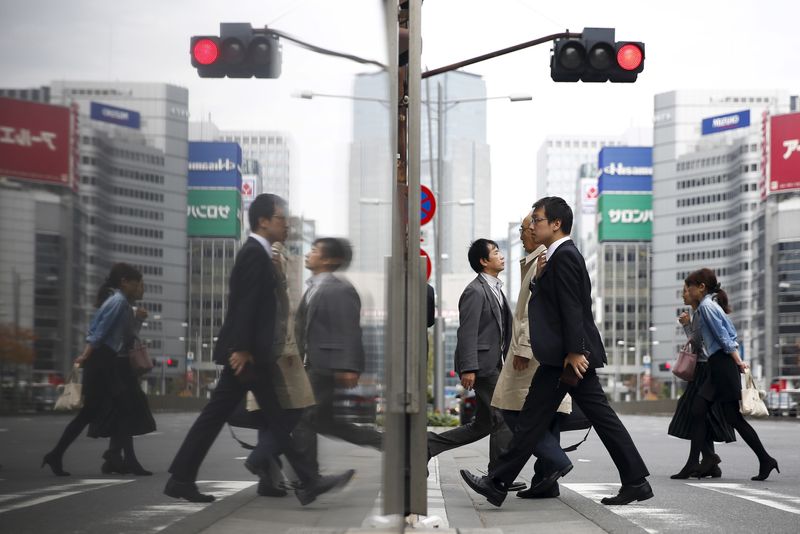By Leika Kihara
TOKYO (Reuters) -A wide range of Japanese firms see the need to continue raising wages due to structural labour shortages, the Bank of Japan said on Thursday, suggesting conditions for a near-term interest rate hike were continuing to fall into place.
Some firms were already examining by how much they could raise pay this year, the central bank said, signaling a growing confidence that bumper wage hikes seen last year will continue.
The BOJ has repeatedly said sustained, broad-based wage hikes are a prerequisite to tighten monetary policy further.
In a statement on the health of regional economies, the central bank added that many parts of Japan saw broadening price hikes from firms seeking to pay higher wages.
Some firms said they are yet to decide how much they would raise pay this year, while other smaller companies remained cautious about hiking wages due to the impact of higher costs on profits, the BOJ said.
"On the other hand, some firms were already discussing details on the pace of rate hikes. Taken together, there were many reports saying a wide range of firms see the need to keep hiking wages," it said in the statement released after a quarterly meeting of its regional branch managers.
The findings are among factors the BOJ will scrutinise at its next policy-setting meeting on Jan. 23-24, when some analysts expect the central bank to raise interest rates from the current 0.25%.
The BOJ raised its economic assessment for two of Japan's nine regions and maintained its view for the remaining areas, saying they were picking up or recovering moderately.
The BOJ ended negative interest rates in March and raised its short-term rate target to 0.25% in July on the view Japan was on track to durably meet the bank's 2% inflation target.
In a news conference after the BOJ's decision to keep rates steady last month, Governor Kazuo Ueda said he wanted to await more data on whether pay hikes will broaden to more companies in this year's wage negotiations between firms and unions.
Large Japanese firms are likely to increase wages by about 5% on average in 2025, the same as last year, the chair of a major business lobby said on Tuesday. The key is whether pay hikes will spread to smaller firms in regional areas.

Wage data released earlier on Thursday showed base salary, or regular pay, rose 2.7% in November, marking the fastest increase since 1992.
All respondents in a Reuters poll taken last month expected the BOJ to raise rates to 0.50% by the end of March.

